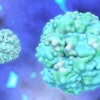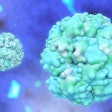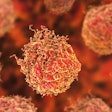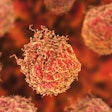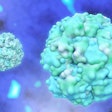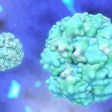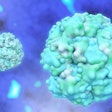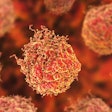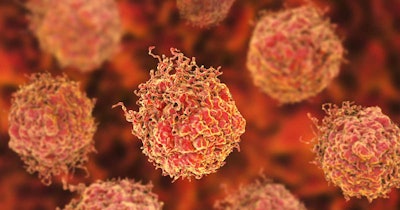
Blocking lipid synthesis enhanced the effect of PARP inhibitors on prostate cancer in a preclinical study, pointing to a potential way to make the treatments effective in more patients.
Researchers have studied inhibitors of PARP, which suppresses DNA damage repair, in prostate cancer; however, the treatments only work in a subset of patients. PARP inhibitors induce DNA breaks that accumulate if the cell is unable to repair the damage. Ultimately, the damage leads to cell death.
Mutations in BRCA1 and BRCA2 genes stop DNA repair, and therefore make PARP inhibition effective, but are only found in 2% and 10% of castration-resistant prostate cancer (CRPC) patients, respectively. Therapies that disrupt DNA could allow patients without these mutations to benefit from PARP inhibition.
A team featuring researchers from Weill Cornell Medical College identified the inhibition of fatty acid synthase (FASN) as a way to improve the effectiveness of PARP inhibitors and published their findings in Science Signaling. The focus on fatty acids reflects the changes seen in CRPC, a form of the cancer that is resistant to androgen deprivation therapy. Lipid synthesis genes are activated as patients progress to CRPC and overexpression of FASN drives extra production of fatty acids.
In preclinical tests, inhibiting FASN led to DNA damage and suppressing lipid synthesis down-regulated enzymes involved in DNA repair. The effects made human CRPC organoids vulnerable to a PARP inhibitor, namely olaparib.
“Our data show that FASN activity can be targeted in prostate cancer cells to modulate sphingolipid metabolism and impair the DNA damage repair machinery, with consequent accumulation of DNA damage,” the authors wrote. “Inhibition of FASN sensitizes prostate cancer models to olaparib regardless of molecular background, increasing the therapeutic options for patients with prostate cancer.”
AstraZeneca and Merck market olaparib as Lynparza in tumor types including prostate cancer, but its use is restricted to subpopulations of patients with BRCA- or HRR-mutated tumors. Combined inhibition of PARP and FASN worked in all cells regardless of BRCA1/2 mutations or the status of PTEN, a tumor suppressor gene that studies suggest plays a role in sensitivity to PARP.
Companies including GSK have studied inhibitors of FASN, attracted by the enzyme’s role in cancer cell survival, but have yet to bring a molecule to market. Poor pharmacokinetics and toxicities have held back development.
